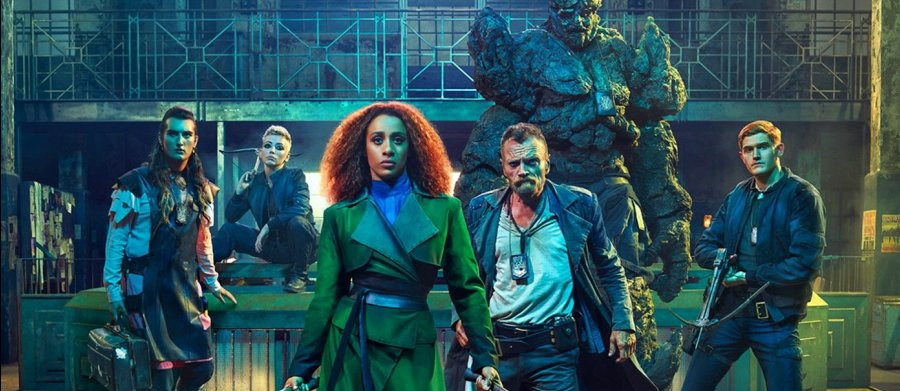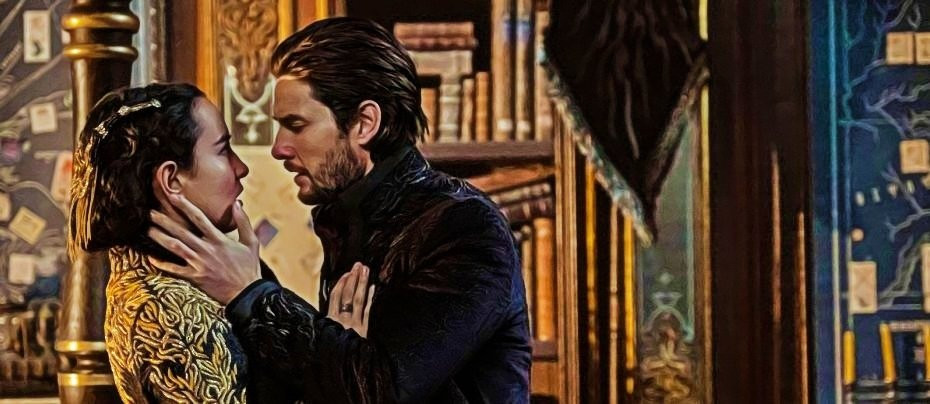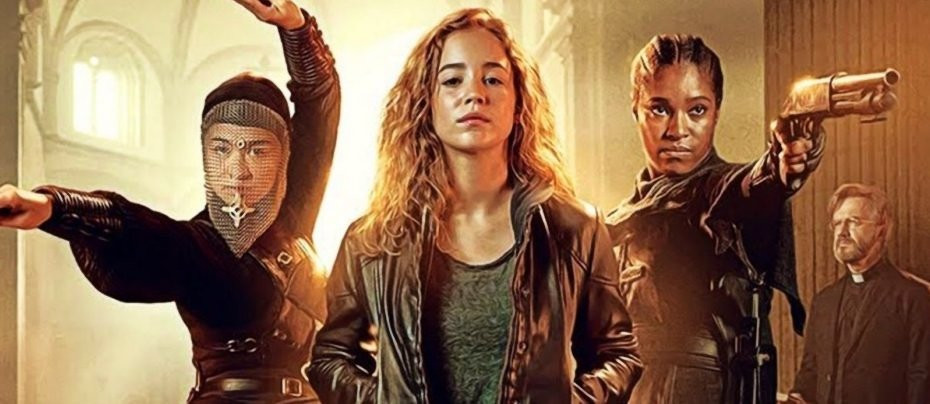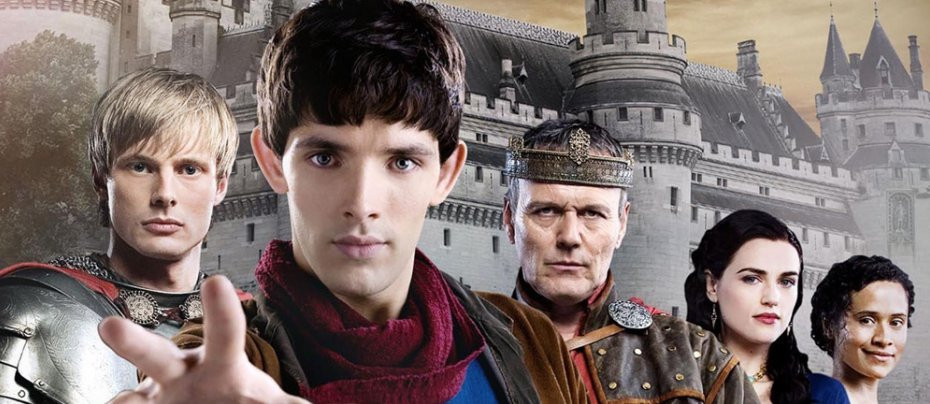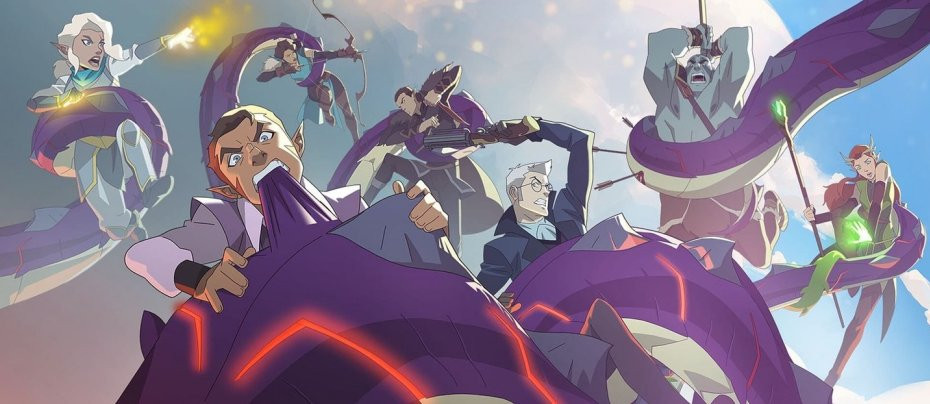
The Legend of Vox Machina - Season Two
Amazon were so impressed that they bought the show and agreed in advance to fund a second season
The Legend of Vox Machina Season Two reviewed by John Winterson Richards
Just as Season Two of The Legend of Vox Machina assumes familiarity with the characters introduced in Season One and what happened to them, this overview assumes the same, or at the very least that the reader has glanced at our overview of that season. Otherwise it is spoiler light in that it does not reveal major plot points but it does discuss structure and themes.
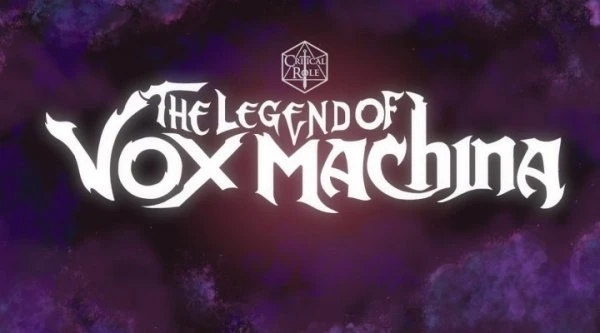
At the time of writing, quite a number of recent shows have had promising first seasons only to disappoint on their return. It is not that their second seasons are necessarily bad. It is simply that, by definition, an original idea loses its originality when it is repeated. So most shows fall into one of two traps: they either give us a second season that looks uncannily similar to the first or they try to be different for the sake of being different, and in the process lose whatever it was that made the show special in the first place.
In fairness this is a well-established phenomenon, and it applies to all cultural endeavours, not just television. The difficult "second novel" or "second album" has become proverbial. In the case of television this problem is exacerbated by the fact that, not always by choice, writers and producers usually have a long time to get things right before finally getting a commission, but if a show is a commercial success and gets renewed, the network or streaming service will want to follow it up as quickly as possible. The time between getting confirmation of renewal and start of production may only be a matter of weeks.
On top of this, the need to get that commission in the first place, and then attract the audience to get that renewal, may well tempt the producers and writers to "front end load" the first episodes with all their best ideas. With very rare exceptions, a show that does not make a strong impact on its launch will disappear without trace very quickly, so there is little point holding back and building slowly. Networks have always been ruthless about cancellation and streaming services are getting more so.
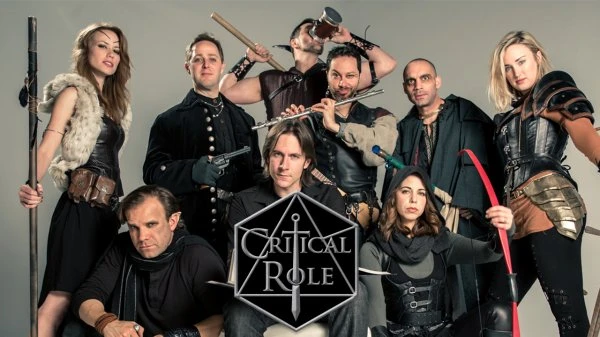
In this respect, "Critical Role," the amiable gang of professional voice actors behind The Legend of Vox Machina started out with two unusual advantages that served them well.
Their first advantage is that the project is based on videos of Critical Role acting out three long "campaigns" of the fantasy role playing game Dungeons & Dragons - not on the game itself, which has its own franchise, just on them playing it. This gives them literally hundreds of hours of potential source material.
Their second advantage is the extraordinary success of their 'Kickstarter' fundraising campaign that gave them enough money to finance most of the first season on their own. This put them in the rare position of being able to make more or less the show they wanted to make, which in turn gave them a level of self confidence which is usually inaccessible to professionals unless they are already high profile and "bankable" (Critical Role being already too experienced to be vulnerable to the self confidence of cocky amateurs that is based on ignorance and usually ends abruptly when confronted with reality).
Success jumping on success, as is often the case, Amazon were so impressed that they bought the show and agreed in advance to fund a second season. This gave Critical Role the precious gift of knowing they had time to tell their story.
They used it wisely. The first season ended on a "cliffhanger" introducing the second, and the ending of the second seems to take it for granted that there will be a continuation. After all, even if Amazon did not renew, which seemed unlikely given the very positive response from critics and audiences alike, Critical Role could probably raise enough money from fans to complete the story independently. In the event, it was no great surprise that Amazon greenlit Season Three before Season Two was even shown.
The first two seasons - and presumably any subsequent seasons - were therefore structured as a single whole. It is a structure that will be familiar to "gamers," especially those familiar with "role playing games" (RPGs). Season One started with an introduction and then a preliminary quest before settling in to the main quest that took up most of the rest of the season. The ending of the season set up a completely new main quest for Season Two.
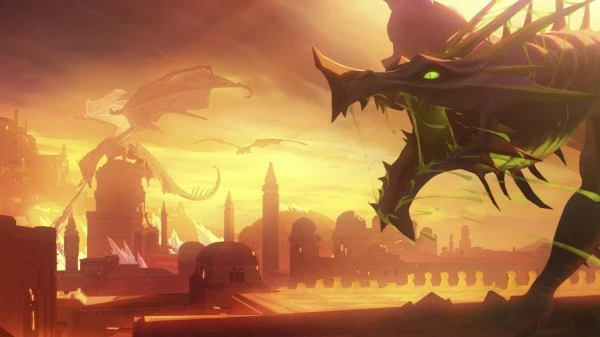
The first episode of the new season expands on this, showing the power of the new antagonists, a formidable flight of dragons called the Chroma Conclave. Our heroes' ultimate objective is to defeat them, but that is not what Season Two is about. The dragons are simply too strong. Our heroes must therefore get stronger if they are to stand any chance at all. So, following classic RPG structure, the protagonists must set aside the main quest temporarily in order to undertake a series of "side quests" to acquire a set of artefacts, called "vestiges" here, that will increase their own powers.
One of the good things about gaming is that it acknowledges that characters grow and develop. The notion that there can be a cumulative effect is therefore central to the plot in The Legend of Vox Machina, which is always looking back to what has gone before. Television drama in general, much of which still seems to be influenced more by its episodic origins than by the relatively recent increase in the importance of story and character arcs, could learn a lot from this.
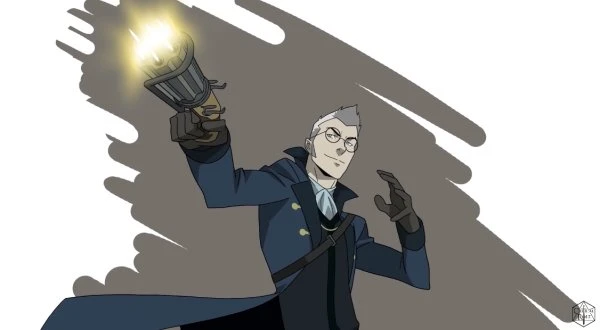
So, even if some of the plotting of Season Two can seem like "busy work," the real purpose of the season is to show how the characters are changing and how they are influenced by the past, both by events in Season One and by what happened before they got together as Vox Machina. Percy (Taliesin Jaffe) the gentleman gunslinger's origin story was revealed in Season One and was central to the main plotline. In Season Two we get to find out more about the earlier years of half-elves Vax (Liam O'Brien) and Vex (Laura Bailey), their pet bear Trinket (Matthew Mercer), druid with low self esteem Keyleth (Marisha Ray), gnome cleric Pike (Ashley Johnson), and the hulking Grog (Travis Willingham), previously described as a "Goliath barbarian, now a "half giant" for some reason. We also get to meet other members of all their families. To be honest, none of these subplots is really essential to the main story, but we have by now invested enough in these people to want to know more about them, so it is time well spent.
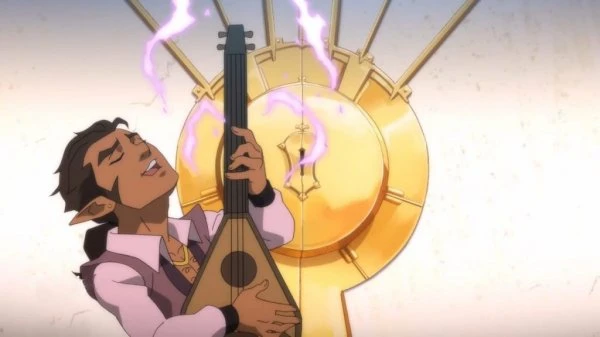
Only Scanlan the bard (Sam Riegel) remains something of a mystery, despite being apparently the most superficial of our band of mercenaries. We do find out a bit about his past, but not how he became what he is. He also seems to be evolving a bit, even if he has some way to go. His unrequited love for Pike becomes more obvious this season. The apparent impossibility of seedy Scanlan ever getting together with pious Pike is both comic and tragic.
Other members of Vox Machina also change. Vax becomes more serious and Vex becomes more humorous. It is once again a pity that a convenient device is found to keep Trinket out of the action for much of the season, but having a bear almost literally up their sleeve would make a lot of the fights too one sided.
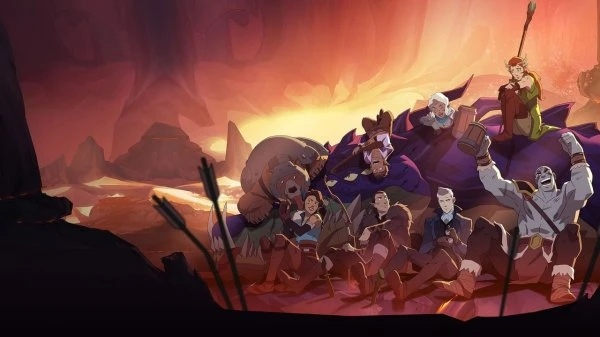
Eventually the characters who have gone their separate ways on side quests for a while link up again to resume the main quest together, there is an impressive big fight, and a final twist is well executed, resetting the board completely for Season Three and increasing the stakes.
As in the first season, there is some variation in the quality of the animation. A lot of the casual movement scenes are pretty basic but there is a lot of artistry in many of the backgrounds and in the character design. The dragons are great, but then dragons always are. Whoever is responsible for Keyleth's ever changing facial expressions deserves a special mention. The palate is commendably colourful.
If one wants to be picky, some of the action sequences go on too long and one can lose track of them. Fast cutting can generate a sense of excitement in small doses but can get boring very quickly when prolonged.
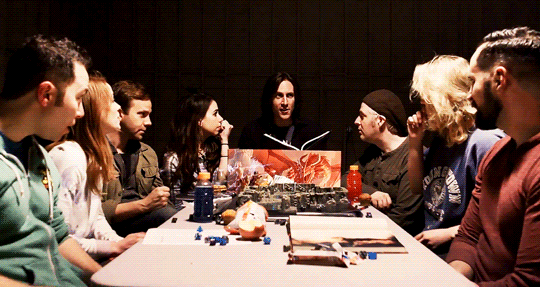
Critical Role know their business. All inhabit their characters with comfortable ease. Yet as professionals they also know the value of a strong guest cast. Gina Torres, Kelly Hu, Indira Varma, Stephanie Beatriz, and Esme Creed-Miles all return as the characters they played in Season One. They are joined by, among others Henry Winkler, Lance Reddick, Ralph Ineson, Fred Tatasciore, Tony Plana, and, following in the footsteps of his fellow Hobbit Dominic Monaghan in the previous season, Billy Boyd. Winkler, Reddick, Ineson, and Plana are particularly good.
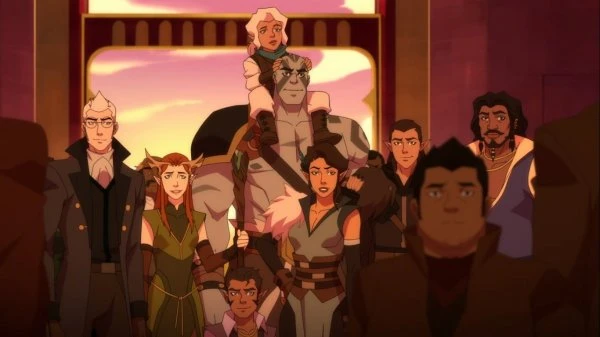
The net result of all this is a show that really knows what it is doing. Critical Role have taken the trouble to learn exactly what their fans expect and they deliver. There is no laboured attempt at subversion. It is perhaps significant that, while the second season of Amazon's other big animation success, Invincible, is unlikely to drop before the second half of 2023, over two years after its first, Season Two of The Legend of Vox Machina dropped almost exactly a year after Season One. This suggests that Critical Role spent a lot of time thinking what they might do if Vox Machina broke through and were totally ready to go when it happened. In spite of this, the whole project still seems fresh and good natured, and one cannot help but look forward to Season Three and, hopefully, beyond.
Published on March 2nd, 2023. Written by John Winterson Richards for Television Heaven.


